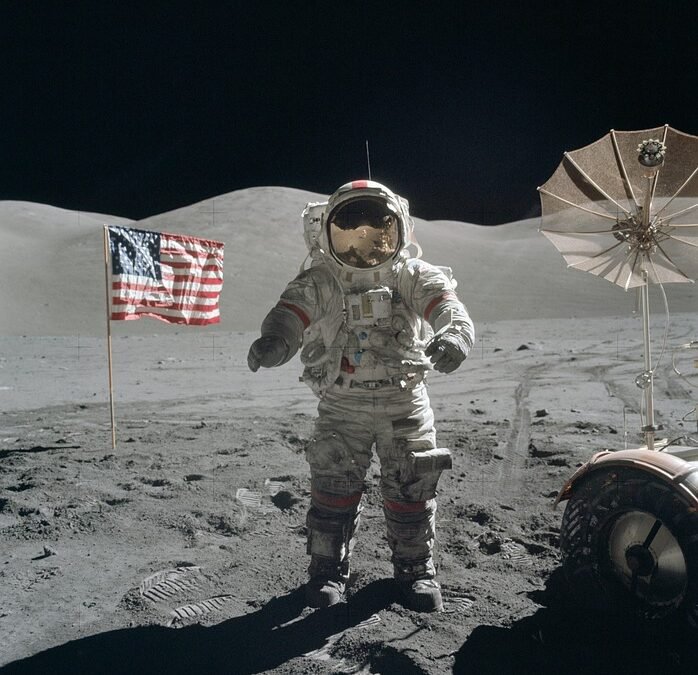Unlocking the Mysteries of Our Universe: A Journey into the Fundamentals of Reality
Introduction
In our quest to understand the universe, we delve into the mysteries that surround us. From the smallest particles to the vastness of space, there are fundamental questions that continue to challenge our understanding. This article takes you on a journey into the fundamentals of reality, exploring the key concepts and theories that have shaped our understanding of the universe.
The Nature of Reality
What is reality? This question has intrigued philosophers, scientists, and thinkers throughout history. The nature of reality is a complex subject, but it can be broadly understood through various disciplines, including physics, cosmology, and philosophy.
Quantum Mechanics: The Foundation of Reality
At the heart of understanding reality lies quantum mechanics. This branch of physics deals with the behavior of particles at the smallest scales. Quantum mechanics has revolutionized our understanding of the universe, challenging our classical intuitions and introducing the concept of wave-particle duality.
The Theory of Relativity: Understanding Space and Time
Albert Einstein’s theory of relativity transformed our understanding of space and time. It introduced the idea that the fabric of space-time is not fixed but can be curved by the presence of mass and energy. This theory has profound implications for our understanding of gravity and the nature of the universe.
The Big Bang: Exploring the Origins of the Universe
The Big Bang theory is the prevailing explanation for the origin of our universe. According to this theory, the universe began as an incredibly hot and dense singularity, expanding and cooling over billions of years. The Big Bang theory has been supported by various observational evidence, including the cosmic microwave background radiation.
Dark Matter and Dark Energy: Unseen Forces Shaping the Universe
Despite our significant progress in understanding the universe, there are still mysteries that elude us. Dark matter and dark energy are two such enigmas. Dark matter is believed to make up a significant portion of the universe’s mass, while dark energy is thought to be responsible for the accelerating expansion of the universe. Scientists continue to study these elusive forces, hoping to unlock their secrets.
The Multiverse: Are We Alone?
The concept of the multiverse suggests that our universe may be just one of many universes that exist alongside each other. This idea arises from various cosmological theories and has gained considerable attention in recent years. The possibility of a multiverse raises fascinating questions about the nature of existence and the potential for other forms of life beyond our own universe.
FAQs
Q: How did the concept of the multiverse originate?
The concept of the multiverse has its roots in various branches of physics and cosmology, including string theory, inflationary cosmology, and quantum mechanics. These theories propose the existence of multiple universes, each with potentially different physical laws and properties.
Q: What evidence supports the Big Bang theory?
Several lines of observational evidence support the Big Bang theory. One of the key pieces of evidence is the cosmic microwave background radiation, which is the faint afterglow of the hot, dense early universe. Other evidence includes the observed abundance of light elements and the redshift of distant galaxies.
Q: How does dark matter affect the universe?
Dark matter plays a crucial role in shaping the universe. Its gravitational pull influences the formation and evolution of galaxies and galaxy clusters. Without dark matter, galaxies would not have enough mass to hold themselves together, and the structure of the universe would be vastly different.
Q: Can we ever know the true nature of reality?
Understanding the true nature of reality is a challenging endeavor. As scientific knowledge advances, our understanding deepens, but there may always be fundamental aspects of reality that elude our grasp. However, our pursuit of knowledge and exploration of the mysteries of the universe continue to push the boundaries of our understanding.
Conclusion
Unlocking the mysteries of our universe is an ongoing journey that requires us to explore the fundamentals of reality. From quantum mechanics to the Big Bang, dark matter to the multiverse, each concept provides a piece to the puzzle of our existence. While we may never fully unravel all the mysteries, our relentless pursuit of knowledge brings us closer to understanding the universe in which we live.

